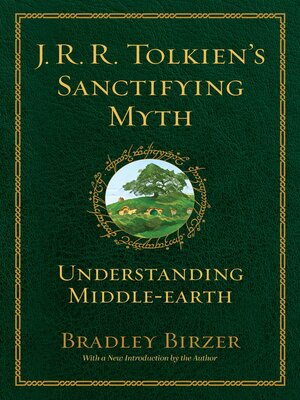
Sign up to save your library
With an OverDrive account, you can save your favorite libraries for at-a-glance information about availability. Find out more about OverDrive accounts.
Find this title in Libby, the library reading app by OverDrive.



Search for a digital library with this title
Title found at these libraries:
| Loading... |
With a new introduction by the author
Peter Jackson's film version of J.R.R. Tolkien's Lord of the Rings trilogy - and the accompanying Rings-related paraphernalia and publicity - has played a unique role in the disemmination of Tolkien's imaginative creation to the masses. Yet, for most readers and viewers, the underlying meaning of Middle-earth has remained obscure. Bradley Birzer has remedied that with this fresh study. In J.R.R. Tolkien's Sanctifying Myth: Understanding Middle-earth, Birzer reveals the surprisingly specific religious symbolism that permeates Tolkien's Middle-earth legendarium. He also explores the social and political views that motivated the Oxford don, ultimately situating Tolkien within the Christian humanist tradition represented by Thomas More and T.S. Eliot, Dante and C.S. Lewis. Birzer argues that through the genre of myth Tolkien created a world that is essentially truer than the one we think we see around us everyday, a world that transcends the colorless disenchantment of our postmodern age.
Peter Jackson's film version of J.R.R. Tolkien's Lord of the Rings trilogy - and the accompanying Rings-related paraphernalia and publicity - has played a unique role in the disemmination of Tolkien's imaginative creation to the masses. Yet, for most readers and viewers, the underlying meaning of Middle-earth has remained obscure. Bradley Birzer has remedied that with this fresh study. In J.R.R. Tolkien's Sanctifying Myth: Understanding Middle-earth, Birzer reveals the surprisingly specific religious symbolism that permeates Tolkien's Middle-earth legendarium. He also explores the social and political views that motivated the Oxford don, ultimately situating Tolkien within the Christian humanist tradition represented by Thomas More and T.S. Eliot, Dante and C.S. Lewis. Birzer argues that through the genre of myth Tolkien created a world that is essentially truer than the one we think we see around us everyday, a world that transcends the colorless disenchantment of our postmodern age.






